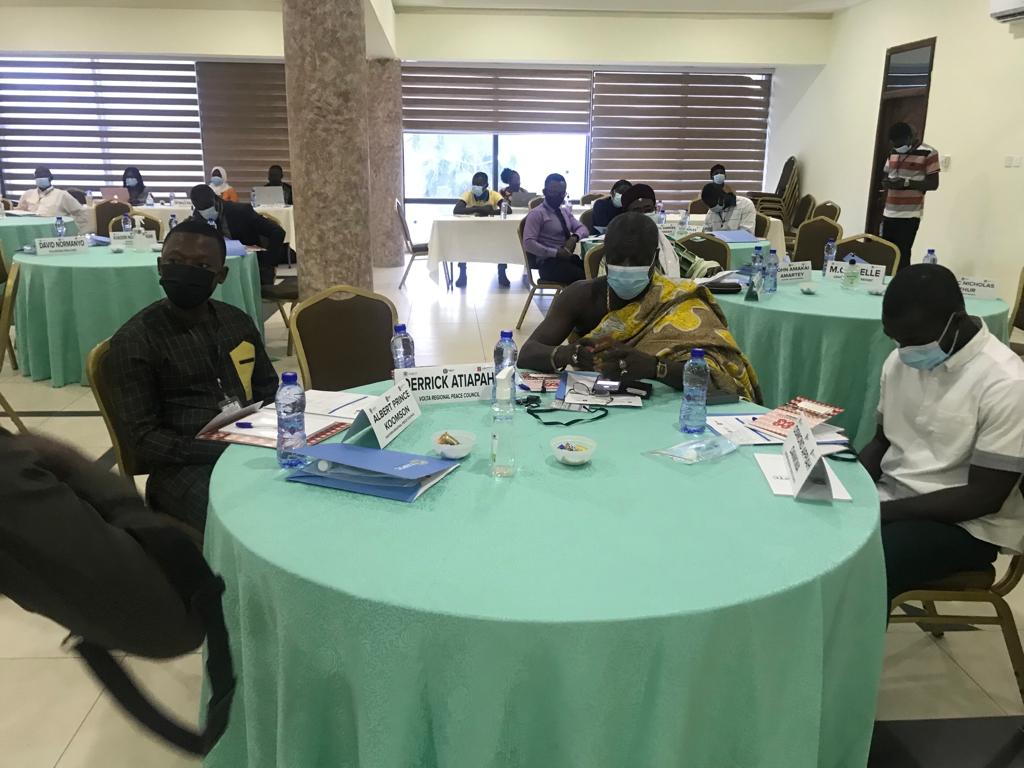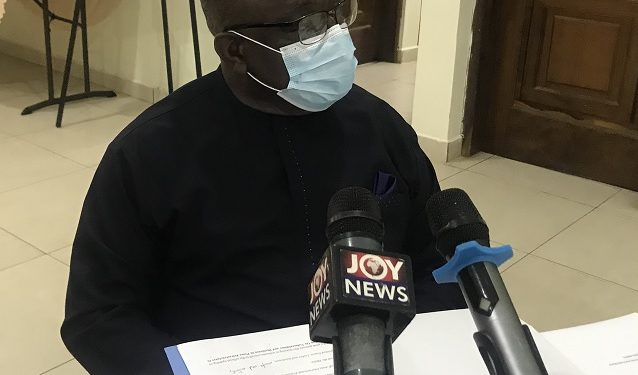Commandant of the Kofi Annan International Peacekeeping Training Centre (KAIPTC), Major General Francis Ofori has described as worrying the activities of violent extremist groups, unconstitutional changes in government, serious governance deficits, and contentious electoral contestations, inter-ethnic tensions between nomadic farmers and pastoralists, maritime insecurity as some factors that are characterizing West Africa’s security situation.
According to him, attempts at the establishment of national infrastructure for peace by member states have produced uneven results adding that while countries such as La Cote d’Ivoire and Sierra Leone have developed structures for the implementation of the national infrastructures for peace (I4P), other countries such as The Gambia and Senegal are yet to take definitive steps towards the establishment of nationally owned infrastructure for peace.
Speaking at the opening of a three-day workshop on Vulnerabilities and Resilience in Peace Infrastructures in West Africa on Tuesday, he said creating the necessary national structures is an important first step towards effective conflict prevention.

“We often wait too long for violent conflicts to erupt before attempting to respond. This has proven to be costly and detrimental to both in human and material terms” he added.
In this regard, Major General Ofori further indicated that it is incumbent upon us all to play our part in this process if we are to achieve the objective of building national institutions, resources, and skills to resolve conflicts and sustain peace within our societies.
He commended the regional peace councils and the various regional security councils for their contributions towards peace and security in the regions adding that “these efforts have to be strengthened in other to sustain the peace we all enjoy in the country”.
On his part, the Chairman of the Central Regional Peace Council, Mathew Eghan noted that there is the need to develop mechanisms for cooperation among all relevant stakeholders when building infrastructures for peace.
He said this can be done by promoting cooperative problem solving to conflicts and institutionalizing the response mechanisms to conflicts to transform them.
Mr. Eghan stated that to prevent conflict and move away from fragility towards resilient societies, there is the need to build capacities to manage conflicts and promote peace.
One such approach he said is to build a peace infrastructure to offer an inclusive and respectful response to enhance social resilience and build sustainable peace.
The three-day workshop on Vulnerabilities and Resilience in Peace Infrastructures in West Africa was organized by the Kofi Annan International Peacekeeping Training Centre in partnership with the National Peace Council with support from the Government of Denmark.
Source: Anthony Sasu Ayisadu/ATLFMNEWS



























